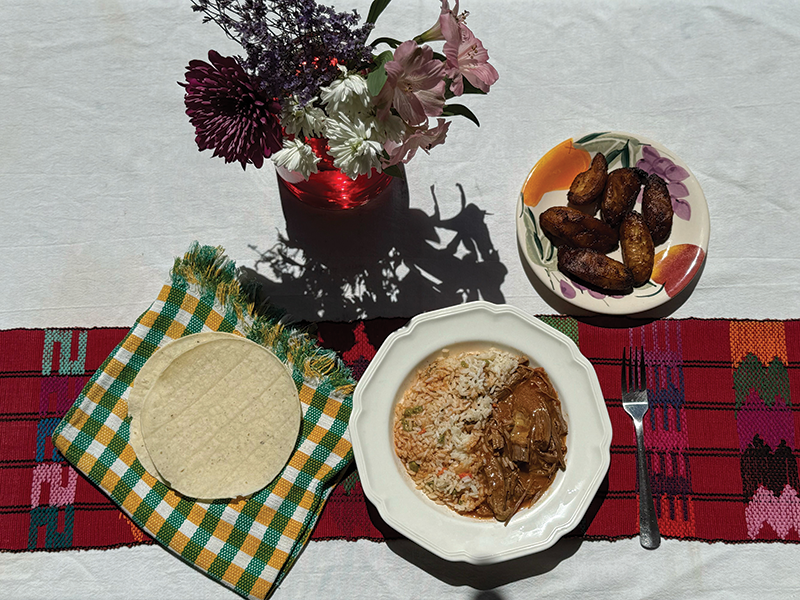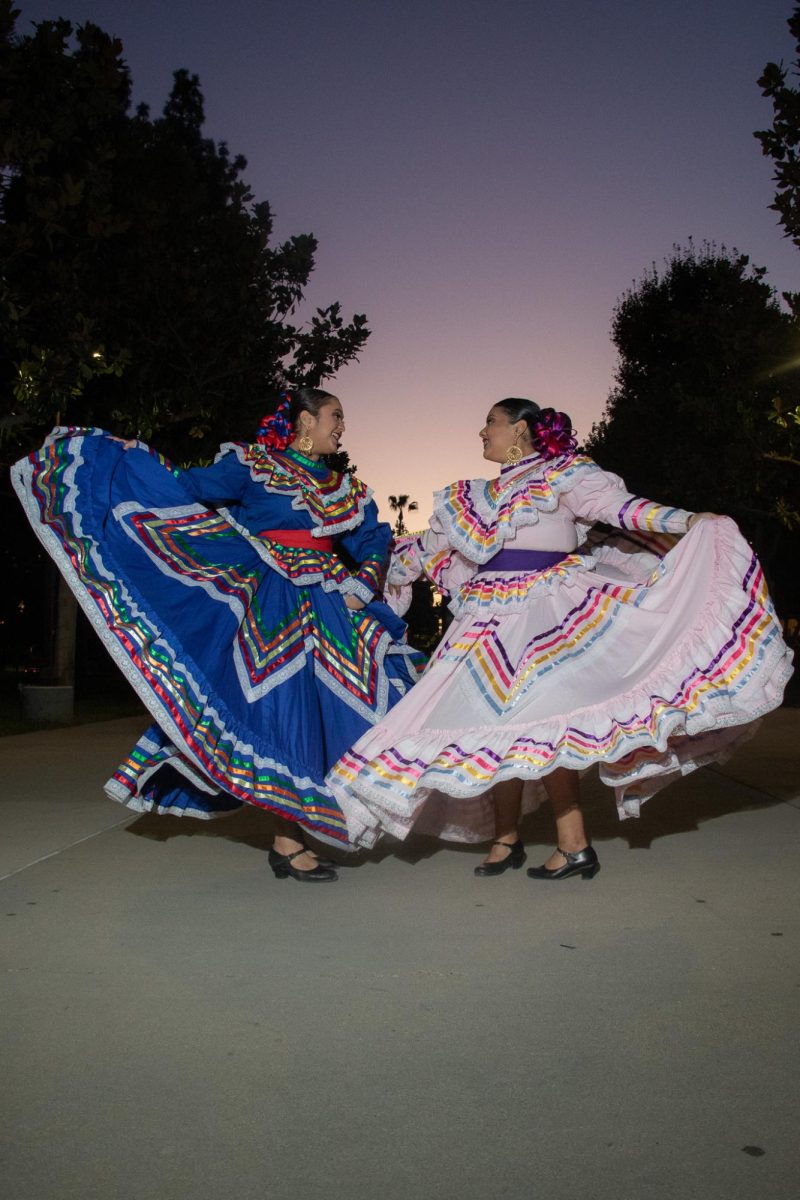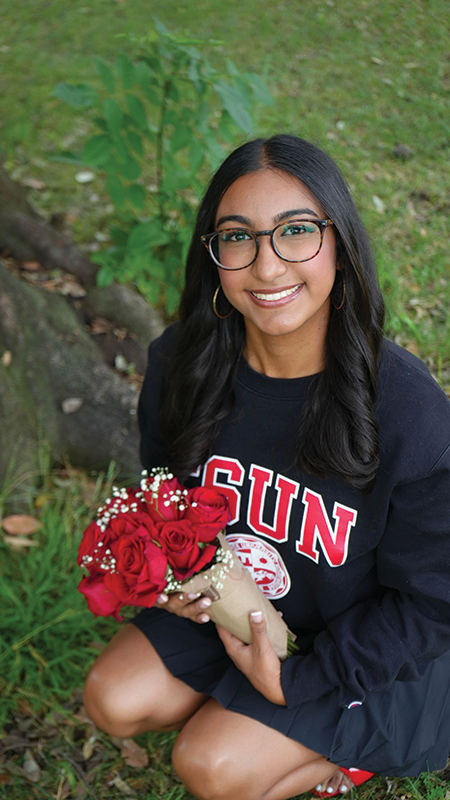Amanda Baugh, a professor of religious studies and the director of the master’s in sustainability at California State University, Northridge, wrote a new book titled “Falling in Love with Nature: Latinx Catholics and Climate Resilience.” It was inspired by conversations with students about the concept of environmentalism and will be released in spring 2024 by New York University Press.
Professor Baugh created the “Religion and Ecology” course, which explores the relationship between nature, humans and the influence of religion. Her book recommendations empower students to engage critically with the intersections of environmentalism and themselves.
“The ultimate goal is to help students see they are leaders,” said Baugh. “They’re very well-equipped to be environmental leaders. It’s not somebody else’s problem. It’s theirs. And they have the power to do something about it.”
All the following books are available to students at the CSUN University Library.
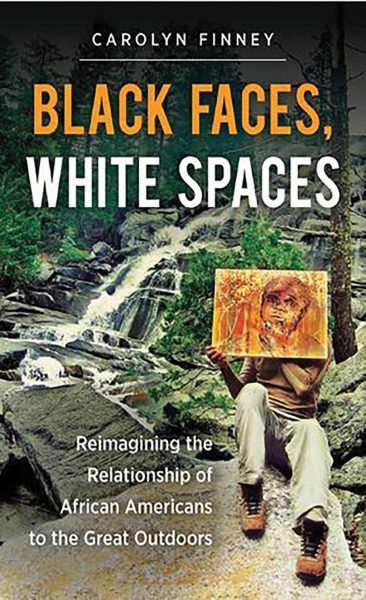 “Black Faces, White Spaces: Reimagining the Relationship of African Americans to the Great Outdoors”
“Black Faces, White Spaces: Reimagining the Relationship of African Americans to the Great Outdoors”
by Carolyn Finney
“Black Faces, White Spaces” criticizes the environmental movement for its focus on whiteness and its historical exclusion of Black voices and bodies in outdoor activities. The book presents an equitable and sustainable vision of environmentalism, as told by Black Americans.
Baugh says the majority of her students are people of color.
“They inherited the story that their communities are not environmental activists when they are. It’s completely embedded in their values and their traditions and their histories, but hasn’t been labeled in that way because environmentalism is presented as white,” she explained.
Baugh said this book shaped the way she teaches her classes.
“One of my biggest goals is to help my students see that they have environmental values in their own communities, and to take ownership of it.”
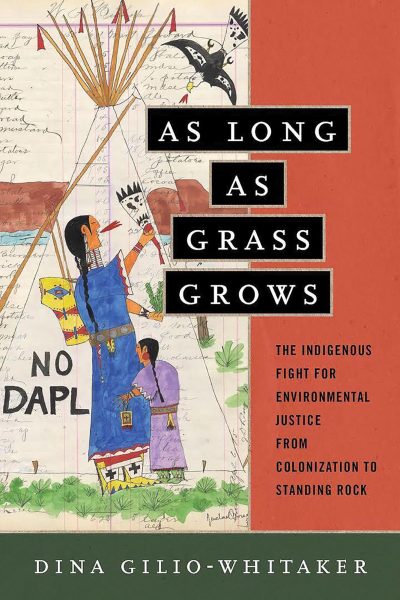 “As Long As Grass Grows: The Indigenous Fight for Environmental Justice, From Colonization to Standing Rock”
“As Long As Grass Grows: The Indigenous Fight for Environmental Justice, From Colonization to Standing Rock”
by Dina Gilio-Whitaker
In “As Long As Grass Grows,” the author examines Indigenous communities’ long-standing fight for environmental justice in the U.S. The book covers land theft, natural resource exploitation and ecological racism. It highlights conflicts between Indigenous communities and environmentalists, such as the racist roots and ideologies of the conservation movement. “Basically, if you think you’re doing environmental justice, and you’re not thinking about dispossession… you’re actually kind of missing the entire picture,” explained Baugh.
“It makes a very strong, powerful argument that the first environmental injustice for indigenous communities is land dispossession,” said Baugh.
“So, it goes back to the very beginning of colonial contact and that it is the first environmental injustice.”
The book showcases Indigenous peoples’ resistance and resilience while exploring how the struggle for environmental justice is deeply intertwined with the fight for Indigenous sovereignty.
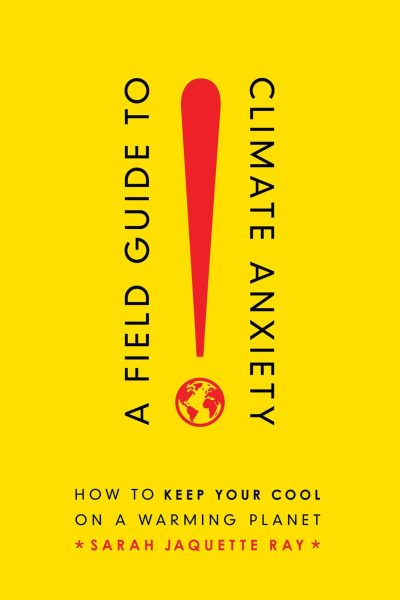
“A Field Guide to Climate Anxiety: How to Keep Your Cool on a Warming Planet”
by Sarah Jaquette Ray
In the book “A Field Guide to Climate Anxiety,” Ray explores the overwhelming anxiety and uncertainty many millennial and Generation Z students experience while thinking about their environmental future. The book is an action guide with practical steps for students on how to deal with ecological grief, prevent burnout, and find joy in advocating for climate justice.
The book offers concrete tips for a healthy mindset with climate advocacy work without minimizing the seriousness of the crisis, according to Baugh.
“The problems are real and important, and we need to do something about it, but also, the book is trying to give us a different narrative as opposed to just, like, curling up into a ball,” Baugh said. “Recognize it’s not all up to you, so you build a supportive community and work with other people.”
The master’s in sustainability program is now accepting applications. If you would like to learn more, visit the CSUN university catalog and contact Amanda Baugh.
